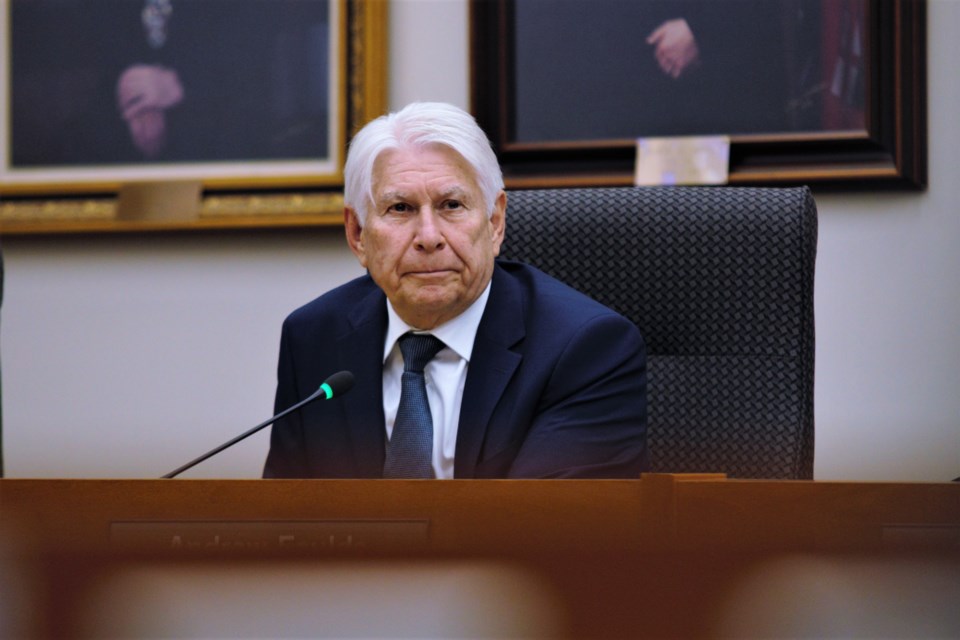THUNDER BAY – Mayor Ken Boshcoff has given up some of the most significant “strong mayor” powers he was granted by the province just days ago.
Boshcoff delegated his powers to propose the budget and to hire and fire top city staffers effective Oct. 31, the same day his expanded authority came into effect.
The mayor had pushed ahead with his bid to secure strong mayor powers from the province over vocal objections from city council, but has said he would use them only in exceptional circumstances.
Councillors objected the changes were imposed by the province without consultation or a clear rationale, and place too much power in the hands of one person.
Boshcoff has now expressed his intent not to exercise three of the key powers, instead preserving the status quo on major budget, staffing, and organizational processes.
In one directive, he announced he would not propose the city budget in 2024, instead directing the city manager and treasurer to bring forward a spending plan in line with council’s target of a six per cent tax levy hike (5.5 per cent after growth).
In another, he delegated his new power to hire and fire the city manager to council, where it had rested before Oct. 31. He also delegated the power to hire and fire other top staffers back to city manager Norm Gale.
Finally, Boshcoff delegated the power to reorganize city departments back to the city manager.
Even after surrendering those significant areas of authority, Boshcoff retains several other strong mayor powers.
The mayor can now pass or veto bylaws related to housing with the support of just one third of council, for example, and can direct and appoint members to committees.
The mayor, currently on a trip to Mount Everest, issued the directives in advance, on Oct. 24 and 26. He could reclaim the powers by revoking those directives at any time.
The city is required to post a notice online when Boshcoff uses powers under the strong mayor legislation.
Boshcoff secured the powers by pledging to meet a provincial housing target of 2,200 new units built in the city by 2031, which would require the pace of new housing construction to pick up by over 60 per cent.
It's unclear how the new powers could help achieve that target. Boshcoff has said he could envision using them to approve the extension of city services to support new subdivisions, a potentially controversial move, given financial and environmental concerns from some councillors over urban sprawl.
